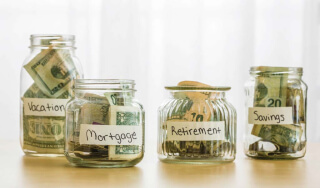
Saving over time is a good way to create security.
National 401(k) Day and Grandparent’s Day in September were special days to teach grandchildren about savings, but every day presents some kind of teachable moment, according to Tuscon.com in “Retirement Planning: A 401(k) Day message.”
One point you should stress to kids and grandkids: they’ve got a great built-in advantage, when it comes to saving for anything, including retirement. Having an extended time in which to save and for money to grow, is something most of us don’t understand, until that advantage is long gone.
Try this example:
Let’s say you have a 22-year-old granddaughter named Chelsea. She’s 22 and works with Becky, 25, and Ben, 30. They both work for a company with a generous 401(k) plan with an amazing dollar-for-dollar match. They each start participating in the program at the same time. They contribute $150 every month through payroll deductions. Add to the fact that contributions increase by 3% every year and assume a nice 8% annual rate of return.
How much of a difference will there be when they reach age 65?
For Ben, who contributes over the course of 35 years, there will be $900,000 by the time he celebrates his 65th birthday.
For Becky, who contributes the same as Ben, has an additional five years on Ben to add to her account, so she’ll have $1.1 million in savings.
Your smart granddaughter, Chelsea, who started working at 22, with eight more years than Ben to contribute and benefit from the company match, will celebrate her retirement at 65 with $1.7 in her 401(k).
They each contribute the same amount. But the mathematics of compounding, also known as the multiplier effect, makes a difference of hundreds of thousands a year.
Here’s another example. Take a sum of money and invest it at 8%. Leave it invested for nine years, and you will double the original investment. Leave it for another nine years, and you will quadruple the investment. The passage of time drives compounding. The longer time you have, the greater the results.